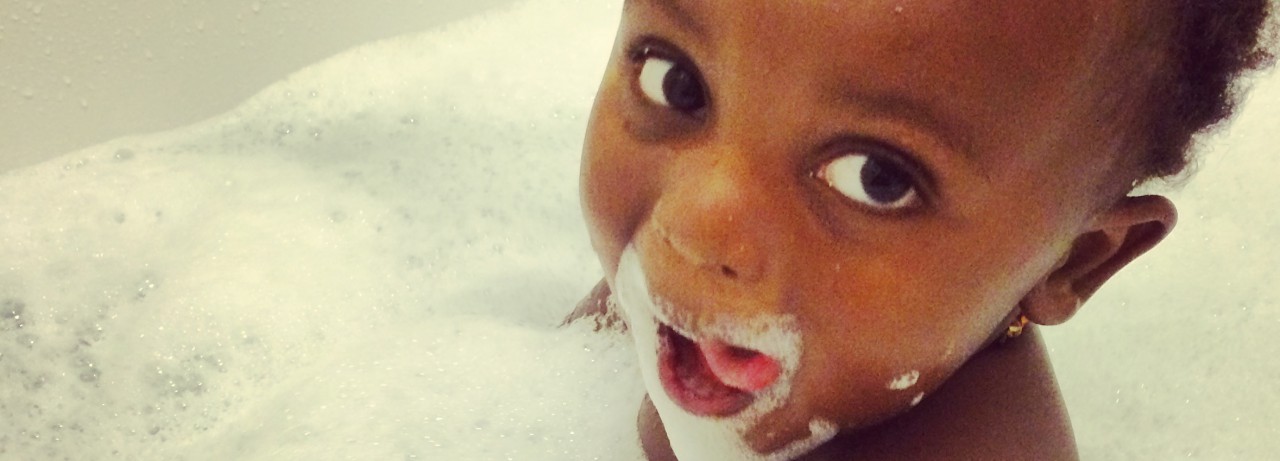I have always loved to travel, and to live in new places. I’ve called seven different cities and countless more rental houses home in the past 20 years. Each time I’ve moved, there were numerous decisions to be made: where to live, where to work, where to play being among them. In the past, I was always free to pick and choose the best neighborhood I could afford, closest to the biggest park, and the amenities that were important to me at the time.
Not once–not one time–did I have to rule out a city, town, or neighborhood I desired based on the color of my skin. While I have always enjoyed diversity, whether or not a place is diverse enough has never been a make-it-or-break-it question on my list. I never saw this as white privilege, but it’s exactly what it is.
With the adoption of my African-American son, that has all changed. If we ever decide to move, we can no longer live just anywhere. We can’t just simply choose the “best” neighborhood with the “best” schools. I have a Black son, and I don’t want his face in the mirror to be the only other Black one he sees. I don’t want to worry about him getting arrested (or worse) simply for walking home or to the park. I want him to go to a good school, but I also know that dealing with racism and othering at the best school would be far worse for him than a mediocre education at a diverse school.
I read this article, Where Should My Black Son Go to School? the other day written by a Black mother who was trying to figure out where to live in Los Angeles. She chronicles her struggle to find a good neighborhood, with good schools, AND a healthy black population. Here’s an excerpt:
“Looking for a place with good schools, a healthy environment, and diversity has taken over your life. You can’t help but mention it in conversation at your son’s preschool. A White mom says she has never thought of diversity as being important when choosing her daughter’s school. She says it doesn’t matter. You know she is only saying this because it has never been her experience to be at risk of harm because of her race. You wonder how fast it would take her to react if no one in her child’s classroom looked like her child—if her child came home crying from being teased and insulted by teachers and peers alike from being the only one.
You realize that White moms of White children are lucky. This is the essence of White privilege. They can live anywhere and be safe. They never have to think about how these decisions will shape their sons’ educational future. And sometimes, quite literally, also his life and death.”
Before having a Black son, I didn’t quite realize the extent to which race affects every decision a Black family makes. Among many other things, I can no longer (nor do I want to) freely pick just anywhere to live. “But, is it diverse enough?” will be the question at the heart of every major decision we make as a family.




We are currently trying to look for our future place to call home and I’m struggling with the same questions. I know where we are now is not the best place to be. Hoping to find a place called home with a good balance 🙂
I feel you! Like Christine says below, integration and inclusion are even more important than diversity. So much to consider. Best of luck to you!
My husband and I are currently waiting for a match and placement, I think about this all the time. While we live in the most diverse area of the country it is also the most segregated, and as a future mother it scares me to think my child may only see people of one ethnicity. Diversity is not enough, integration and inclusion (as we can see by the recent events in Hollywood) are also important components if you are fortunate enough to factor them into a move. You may find this interesting: http://fivethirtyeight.com/features/the-most-diverse-cities-are-often-the-most-segregated/
Yes, that is a really important point. Thank you for sharing that article. Looking at segregation on a map like that is disheartening. I know it to be true, but seeing it laid out like that is powerful. Thanks again, Christine.
Reblogged this on Two Hearts, Four Feet: The Murphy Family's Adoption Journey and commented:
As a social worker and a mom to two children of color, I think about diversity all of the time.